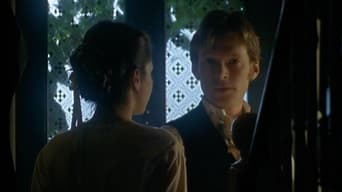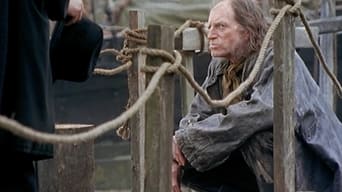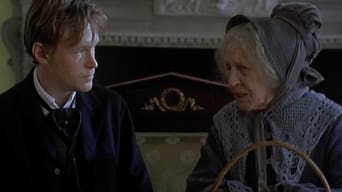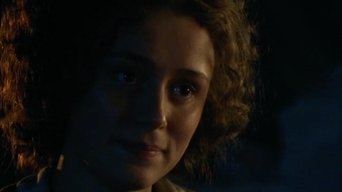Hannah Long
Our Mutual Friend is mostly about stalkers (there are seven). And not only dudes obsessed with beautiful women, but greedy rogues tracking down any embarrassing secrets in the lives of rich public figures, or jealous rivals shadowing their opponents.Dickens was already fascinated by the idea that we cannot really know what goes on inside the hearts of our fellow men, and Our Mutual Friend further complicates this theme by incorporating the devious facades of high society and its occupants. From a pair of sycophantic social climbers to a one-legged man of letters, no one is what they seem.As an adaptation, this six-hour TV film is near-perfect, cutting only the most superfluous subplots (Fascination Fledgeby, for instance). The minor characters almost steal the show, providing a coterie of wonderfully mad Dickensian eccentrics (it's hard to pick, but I think my favorite is Timothy Spall's lovelorn Mr. Venus, closely followed by David Bradley's hawkish Rogue Riderhood.)But the main characters win the day. Our Mutual Friend contains several of the most beautiful relationships I've seen in period drama, thanks chiefly to the talent and charm of the principle actors. The sublimely beautiful Bella Wilfer is a splendid mix of pettiness and elfin charm. Lizzie Hexam is a bit too idealized and posh, but I'm sure old man Dickens would approve. Rokesmith combines mystery and ambiguity with an appealingly quiet dignity. Eugene Wrayburn, on the other hand, is wildly self- destructive and irresponsible, barely pardoned by his waggish charm. Perhaps the best performance of all is Mr. Headstone's, the passionate schoolmaster crippled by insecurity and pride.The complexities of the plot are also fascinating to negotiate...romance, drama, and obsession thread their way through a ridiculously tangled web of inheritance, blackmail, and murder.Also, Bella Wilfer's dresses are about the most gorgeous thing ever. If you're a period drama fan, this, my favorite Dickens adaptation of all time, isn't to be missed.Longer review here: http://www.longview95.blogspot.com/2014/07/our-mutual- friend-review.html
Robert J. Maxwell
I was confused throughout most of this series, regarding the characters and their relationships to one another, so much so that I wonder if I watched the episodes in their proper order. All, however, was resolves in Episode Four. I made certain I watched it last.Like the other BBC renditions of Dickens, it's obviously a classy production. In a way, the narrative threads -- which perplexed me -- are just the icing on the cake anyway, because the production values here are so high and so persuasively accurate that it's like watching a five-hour ethnography of London in the 1840s. I've never seen such filth. All of Dickens' works involve the poor, but these "boat people" are at the very bottom of the scale.They live in and around the mud on the banks of the Thames and they cart away cinders from heaps of ashes to be sold for making bricks. And I always thought I had it bad. Timothy Spall, as the humble but good Mr. Venus, hauls garbage in its various configurations from the river to refurbish and resell them -- cast-off clothing, discarded umbrellas, carcasses of animals and humans, bits of metal, glass jars, dolls. He's managed to accumulate enough human bones -- a femur here, a calcaneus there -- to assemble an almost complete human skeleton, of which he is justly proud. It engenders one of those choice bits of Dickensian prose. Mr. Venus is associating with a respectable woman and he's hopeful that, if they are ever married, his profession won't lead to "her being regarded in a bony light." I love it when they say things like that. Elsewhere, Dickens has a character exclaim: "Oh, joy! What a reversal of desolation!" No wonder W. C. Fields was so convincing as Mr. Micawber.Dickens clearly means to direct our attention to the plight of the poor. These are people who, when they grow old and die, crawl off under a bush and expire alone like worn-out animals.Yet Dickens doesn't romanticize his disenfranchised. There is at least as much evil among them as there is among the rich. And this is a typical story for him -- hidden wills, marriage above or below one's station, intrigues to lay hands on an inheritance, blackmail, that sort of thing. But Dickens was no revolutionary -- not, at least, judging from those of his works that I'm familiar with. Everything can be solved by truth, charity, and justice. Well, sometimes.Being a scavenger in the rubbish heaps or the cholera-ridden cloaca that was the Thames was in fact a dangerous business. Disease was rampant, especially among children, at the time. That was all before Britain's National Health Care, of course. It's curious that, as I write this, there is such a hateful outcry against even the slightest form of improvement in health care in the United States. I'm compelled to believe that there are Americans of some number who wouldn't object to a return to the health delivery system of Dickensian London. If poor people had any ambition they wouldn't get ill in the first place. Social Darwinism redux. Herbert Spencer is applauding from beyond the grave. Scrooge would have approved too.All the performances are at least adequate and some are better than that. Anna Friel as Bella is outstanding. She's not afraid to talk and eat at the same time. The Make Up Department should get a medal. What overblown blowziness! The teeth of the poor are especially well done. They seem to hang in the air by themselves as things do in especially amorphous nightmares.But I think I may have worn out my enthusiasm for the Dickens series. Maybe it was my own fault. Maybe I DID mix up the episodes. But it seemed a little tiresome -- long, mostly sad, and complicated. Made me want to watch a Bugs Bunny cartoon or eat some sherbet or something to clean my palate. But they're so well executed that I'm sure I'll get back to them after a year or two in a straight jacket so I don't slit my wrists.
sshogben
This recent BBC filmed version of Dickens' "Our Mutual Friend" was a big budget project that fell far short of lofty ambitions. The film clearly wanted to be a grand sweeping epic of the Victorian Era, but ultimately this story did not have much to say.Conceived as a massive 6-hour work to be presented in four ninety-minute segments, the plotting is so heavy-handed and obvious, even tedious, that lopping a full quarter out of the whole could only have improved the story and pacing. As it was, the primary plot elements were so unoriginal and timeworn that even though previously unfamiliar with either this Dickens original book or other filmed adaptations of it I found no suspense whatsoever to one of the two main plot lines to the story. What Happened was clearly implicit to me from the get-go. The timing of When this What later Happened thus presented comparatively little incentive for my interest..The fatal script shortcomings of "Our Mutual Friend" appeared to me even more striking by contrast against another recent BBC release "Under The Greenwood Tree" (2005) which I had just viewed for the first time a short while previously. Where "Our Mutual Friend" squandered so much time and talent telling an ostentatiously complex story that proved superficial and obvious, "Under The Greenwood Tree" succeeded brilliantly in conveying ... (despite only ninety minutes, and a much smaller budget) ... a deceptively simple story that nonetheless captured layer upon layer of universal relevance and deep meaning.By no means, however, should the failings of "Our Mutual Friend" be attributed to its performers, who were uniformly excellent from top to bottom.In form "Our Mutual Friend" presents two separate but occasionally intersecting plot lines. Through the strength of their performances, Steven Mackintosh and Anna Friel brought to the Painfully Obvious half of the story more interest than the weakness of that storyline could otherwise have generated. Paul McGann and Keeley Hawes, however, were even better though it must be confessed the beautifully modulated tones of Ms. Hawes seemed a long way from the docklands dialect her role suggested. Supporting performances by such veteran character actors as Peter Vaughan and Pam Ferris (as the inimitable Boffins) brought richness and depth to material that otherwise would have been completely forgettable, though if I had to pick one actor who triumphed far and above the limitations inherent in his role it would be David Bradley (best known as Argus Filch from the "Harry Potter" canon) creating a memorably rascally Roger Riderhood.Sit through "Our Mutual Friend" once to enjoy exceptional performances from a great cast of exceptional British actors. Rent once but not buy.3 out of 10.
imdb-2930
My copy of this version is treasured part of my video library, with solid performances from the cast and a Bradley Headstone suicide scene that chills me to the bone. But I long to see again the version made in 1976, which launched the careers of Warren Clarke, Jane Seymour, besides polishing the reputations of more established actors, like the great Leo McKern, Kathleen Harrison and Ronald Lacey - and cast expressions like "anatomical pursuits" and "mellering to the organ" into our family's private jargon for 25 years.What I could not understand about this production was the removal of some choice Dickens dialogue, particularly between Messrs Boffin & Wegg. Peter Vaughan and Kenneth Cranham had to make do with a very cut down version of the "Weal & Hammer Pie" conversation, which Leo McKern and Alfie Bass made so hilarious I nearly climbed inside my telly.But this is minor carping and should not put off the prospective viewer from a beautifully filmed production, one of the best period drama versions in recent decades. I'll watch it once a year until my tape wears out.If I could only get hold of a copy of the 1976 version though. Now that WOULD be mellering to the organ!
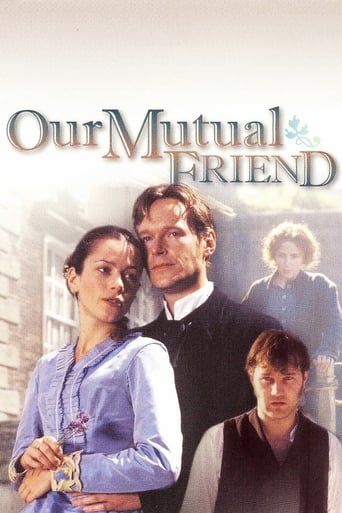
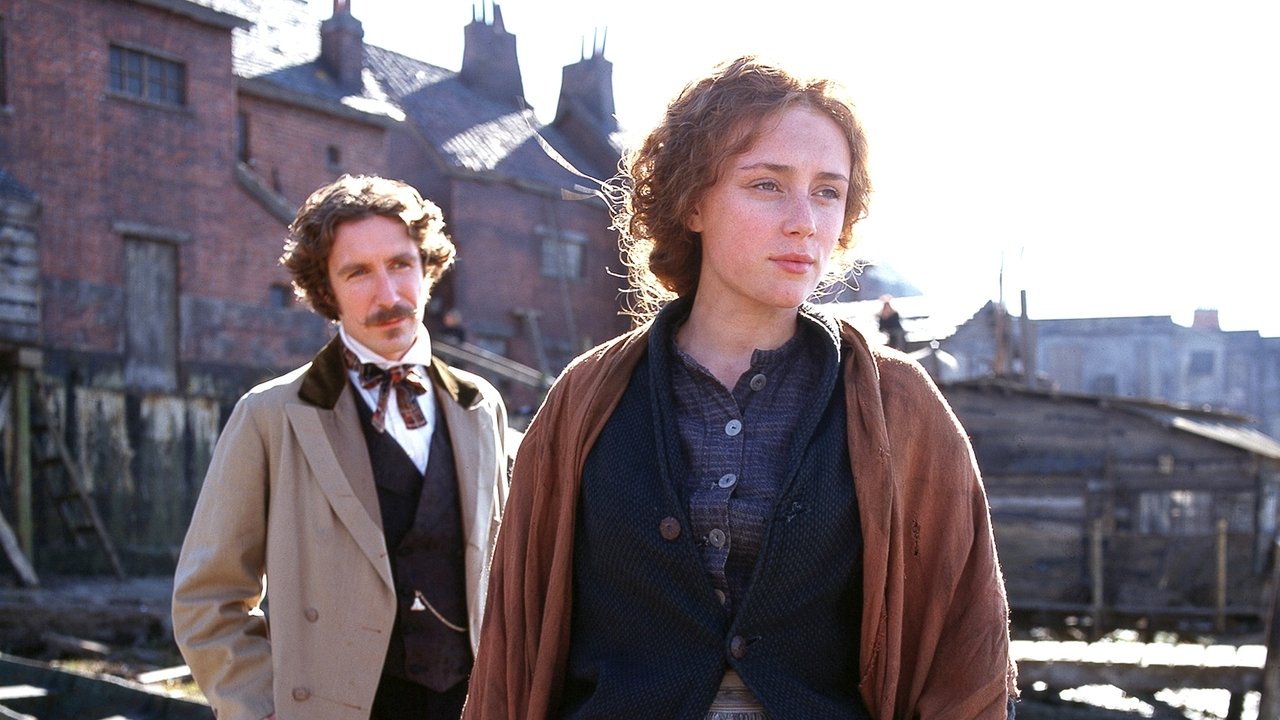
 AD
AD

